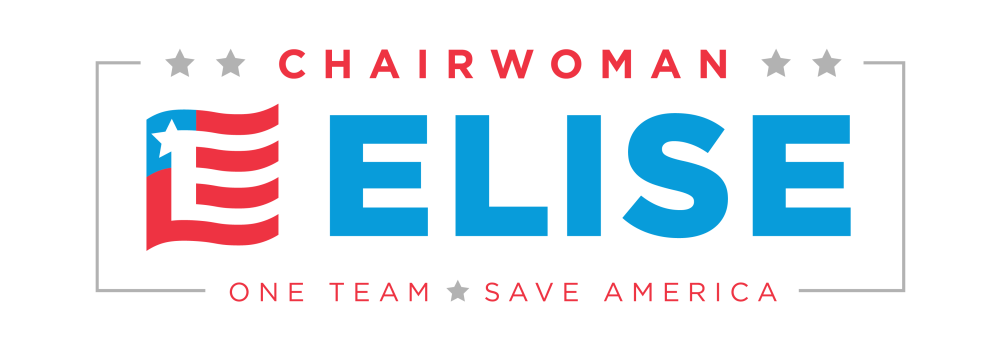September 21st, 2023
by Aaron Marbone
Immediately after Gov. Kathy Hochul signed the “Early Mail Voter Act” into law on Wednesday, expanding mail-in voting universally to all voters, North Country Rep. Elise Stefanik, along with other Republican and Conservative politicians and political organizations, sued the governor and state Board of Elections officials, arguing that the law is unconstitutional.
Up until now, there have been only two reasons for a voter to be eligible for an absentee ballot in New York — they would need to be outside their county on the day of the election, or be unable to appear at a polling place because of illness or physical disability.
The law passed Wednesday keeps those requirements, but also adds to them, essentially opening up absentee ballots to all voters so they don’t need to meet either of those two qualifications. This is also referred to as “no-excuse absentee voting.” It requires boards of elections to mail a ballot to every voter who requests one.
On Wednesday, Hochul said this is a way to make voting more accessible for people with busy lives. The lawsuit calls this law a “blatant violation” of the state constitution. Stefanik said it is “ignoring the democratic process and undermining the state constitution.”
The lawsuit’s argument boils downs to, because this law is not a change to the constitution, it is not valid.
“Throughout the history of the state, whenever the legislature has sought to allow mail voting for certain persons — first soldiers, then commercial travelers, then all travelers and the physically ill or disabled — it has first needed a constitutional amendment,” the lawsuit states. “This understanding went unbroken until 2023.”
In 2021, a proposed constitutional amendment expanding mail-in voting was shot down by New York voters. The lawsuit says since the attempted constitutional change was rejected, that means this law is unconstitutional. That will ultimately be up to a court to decide. The lawsuit asks that the case is heard in the state’s Third Judicial District in Albany. The lawsuit is seeking to have the law deemed unconstitutional and for the courts to block the state from rolling it out, with Election Day coming on Nov. 7.
Hochul’s office did not respond to requests for comment by deadline Wednesday.
The law signed Wednesday was passed by the state Legislature in June. State Sen. Dan Stec, R-Queensbury and Assemblyman Matt Simpson, R-Horicon voted against it and Assemblyman Billy Jones, D-Chateaugay Lake voted for it.
This law applies to all elections — national, state, local and school — by amending the state election code in dozens of places where it says “absentee” to say “early mail.”
THE FAILED AMENDMENT
The state attempted to amend its constitution with a similar bill two years ago, saying the “state constitution allows absentee voting in extraordinarily narrow circumstances.” This constitutional amendment was proposed in 2019, even before the coronavirus pandemic prompted the state to expand mail-in voting by adding a third qualification for people concerned about contracting the virus at the polls. It passed the state Legislature in 2021 and went to a public referendum.
On the ballot of the November 2021 general election, voters voted on the proposed amendment titled “Authorizing No-Excuse Absentee Ballot Voting,” which would have deleted all requirements for absentee voting. This was the “necessary legal prerequisite,” the lawsuit states, but voters rejected this proposal 55% to 45%.
One of those “no” votes was cast by Stefanik herself. Republican leaders strongly opposed mail-in voting expansions, even with a constitutional amendment.
The lawsuit calls this an “overwhelming” rejection. It was a slight majority in a vote nearly split in half. The lawsuit said voters who voted against this amendment have “had their votes effectively nullified” by the law passed Wednesday.
The lawsuit says the renaming of this law to distinguish it from the one rejected is “semantics.”
WHO IS ATTACKING DEMOCRACY?
Stefanik accused Hochul and Democrats of “attempting to remove basic safeguards on absentee voting and allowing unregulated mass mail ballots in clear violation of the state constitution.”
“Kathy Hochul and extreme New York Democrats are trying to destroy what is left of election integrity in New York,” Stefanik said in a statement. “Under Kathy Hochul’s failed leadership, elections are less secure and less transparent and will now be unconstitutional.”
Hochul said on Wednesday that people who oppose voting rights expansions are “against democracy.”
“The biggest problem we have with our system, it’s still too hard to cast a ballot,” Hochul said. “Life gets in the way.”
She spoke about someone going to work, helping their kids with school lunches and homework, visiting family in nursing homes, having hour-long commutes or holding down a second job, and trying to find time to vote.
“It’s finally time that people can vote by mail. We saw it work during the pandemic,” she said.
Hochul was baffled why people would oppose this.
“And it’s just, why not? Why not? What is so sinister? Why would this be attacked? What’s the problem with this? What are you afraid of?” she asked.
She described “a more sinister, slow-motion insurrection” than the attack on the U.S. Capitol building on Jan. 6, 2021, one where GOP-controlled states are stripping away voting rights.
ELECTION SECURITY AND EXTRA COSTS
The lawsuit implies that this expansion of mail-in voting creates opportunities for voter fraud. Under the law, it says absentee ballots can be requested by a voter’s spouse, parent, child or a member of their household, but they don’t have to provide the address of the voter. It can be any address. Applications also require an electronic signature, with few requirements for witnesses to verify it was signed by the voter.
The lawsuit says pre-printed mail ballot applications are supposed to be distributed to political parties, colleges and “other convenient distribution sources.”
According to the lawsuit, this law will put “substantial new administrative (and financial) burdens” on election boards and personnel, which will be required to process more additional mail-in ballots than usual, submitted by voters who aren’t sick, disabled or out of the county on election day.
When a voter requests a mail-in ballot, they are sent an application by the board with a pre-paid postage envelope to mail it back in. Then, they are sent a ballot with another pre-paid postage envelope. Ballots must be delivered in person or by mail by election day.
County BOEs will be required to provide the pre-paid postage envelopes — one for the application and another for the ballot itself.
“The labor and other costs associated with processing, tabulating, and cross-checking” these ballots will be “ultimately borne by the taxpayers,” the lawsuit points out.
The suit also argued it will put burdens on candidates whose voter outreach plans are designed to encourage voters to cast their ballot in-person on Election Day under the traditional law. It says they would have to “devote significant resources” to additional voter outreach programs, including more frequent contact with voters to ensure they apply for and return a mail ballot and an “exhaustive voter education campaign” to contact voters and explain how the new mail-voting system works. This mail-in system has more steps than in-person voting.
The lawsuit says the same goes for the state Republican and Conservative and national Republican party committees, which the lawsuit said will need to hire more staff, start get-out-the-vote efforts earlier and have already began budgeting for the 2024 election cycle.
The lawsuit said this law could “materially affect the competitive environment” of campaigns and the “likelihood of future victory.”
It also posits that mail-in absentee votes risk nullification if the lawsuit is successful, a product of the lawsuit itself.
“Until the constitutional validity of the Mail-Voting Law is definitively resolved by the courts, candidates for office will be faced with the dilemma that by encouraging supporters to lock in their votes by submitting mail-in ballots, they may risk the later nullification of those votes as invalid under the constitution,” the lawsuit states.
It also says the law puts the Republican and Conservative election official plaintiffs in the suit in an “untenable position.”
“It will require them to perform acts that violate the New York Constitution or to refrain from actions compelled by New York statutes,” the lawsuit states.
Last year, the Delaware state Supreme Court banned no-excuse mail-in voting after that state’s legislature passed a similar law.
The states of California, Colorado, Hawaii, Nevada, Oregon, Utah, Vermont and Washington all conduct elections by sending each voter a mail-in ballot by default. New York is one of 14 states which require an excuse for absentee ballots. The 28 remaining states all have no-excuse absentee voting.
The first time New York amended its constitution to allow absentee voting was in 1864 during the Civil War, to allow soldiers on the battlefield to vote by mail. Then again, in 1919, as more people traveled for work or business, the constitution was amended. In 1923, 1929, 1947, 1955 and 1963, more amendments came opening absentee voting to veterans hospitals and to people with illnesses and disabilities.
See the full Press-Republican article here.





